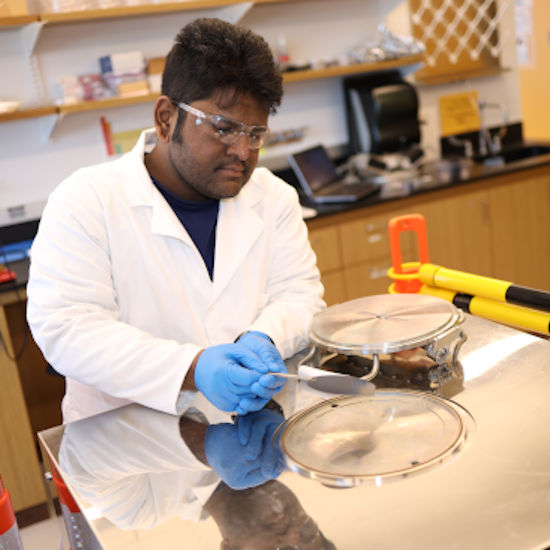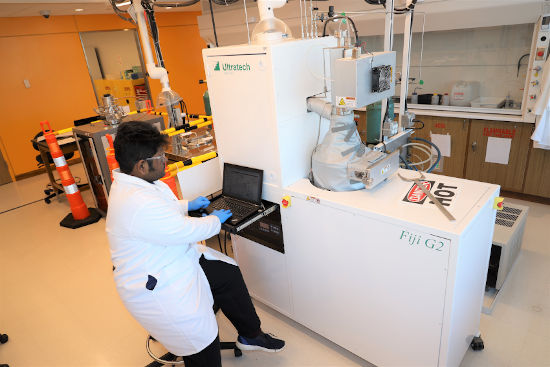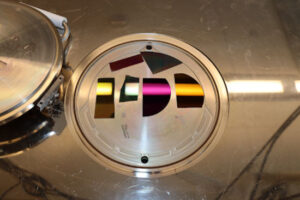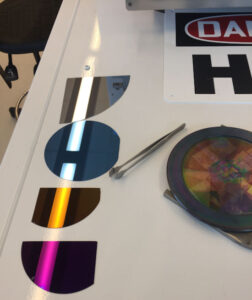UConn Ph.D. Student’s Research in Atomic-scale Processing of Semiconductor Materials
 Adnan Mohammad is a Ph.D. student in electrical engineering at the University of Connecticut (UConn) with Professor Necmi Biyikli as his faculty advisor. He completed his undergraduate and graduate studies in Electrical Engineering at American International University and Bangladesh University of Engineering and Technology, respectively. He chose UConn for his Ph.D. because of UConn’s great reputation for engineering. UConn also offers great funding opportunities, which is very important to international students like himself.
Adnan Mohammad is a Ph.D. student in electrical engineering at the University of Connecticut (UConn) with Professor Necmi Biyikli as his faculty advisor. He completed his undergraduate and graduate studies in Electrical Engineering at American International University and Bangladesh University of Engineering and Technology, respectively. He chose UConn for his Ph.D. because of UConn’s great reputation for engineering. UConn also offers great funding opportunities, which is very important to international students like himself.
Adnan’s research at UConn focuses on nanotechnology and thin film deposition. The aim of this project is to synthesize semiconductor materials that would apply to a variety of industries. This could include electronics as well as biomedical applications. In terms of clean energy, this would be groundbreaking in fuel cell and solar cell research.
Adnan is synthesizing oxide compounds using oxygen plasma as the oxidant. They must perfect this step before moving on to their end goal: synthesizing vanadium oxide, which is a semiconductor with phase-change properties. As they look for vanadium oxide they are keeping in mind the properties they need: metal-insulator transition (MIT) property which can be used a responsive materials for various applications.
 Experimentally, Adnan heats up the TEMAV, the source for the vanadium, to 115 °C and then loads the Si or glass substrates into the atomic layer deposition (ALD) reactor. ALD is particularly critical to achieve atomic-precision thickness control, large-area uniformity, and ideal 3-D conformality.
Experimentally, Adnan heats up the TEMAV, the source for the vanadium, to 115 °C and then loads the Si or glass substrates into the atomic layer deposition (ALD) reactor. ALD is particularly critical to achieve atomic-precision thickness control, large-area uniformity, and ideal 3-D conformality.
Being able to do comparative studies is Adnan’s favorite part of the research. In this lab, he is growing oxide compounds with two different systems. He can conduct comparative research on how the same material grows in two different ALD reactors equipped with distinct plasma sources. Adnan also noted to anyone who wants to work in Professor Biyikli’s Atomic Layer Engineering (ALEng) Lab, it is important to be aware of the challenges and opportunities of conducting experimental research on nanoscale materials. “Experimental research is frustrating when you get stuck with lower quality materials or results which you cannot repeat. However, it is satisfying when you achieve films with desired properties and even better properties than anyone else reported in scientific literature. It is the great feeling of making a unique contribution to the field which makes experimental research in this attractive to me” says Adnan Mohammad.



